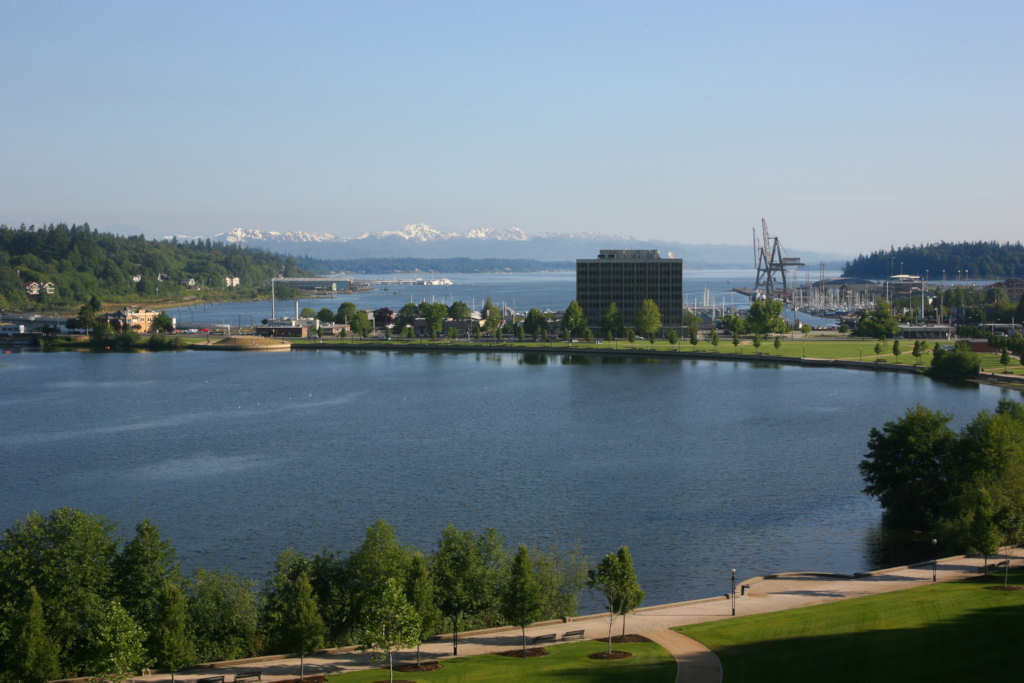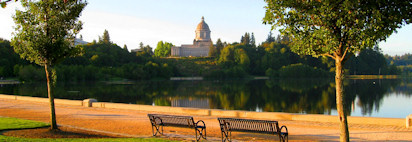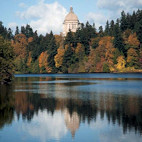Community Discussion on the Deschutes Watershed/Capitol Lake a Success !
This first CLIPA sponsored public discussion about the future of the Deschutes Urban Watershed and Capitol Lake was attended by elected officials and representatives of Olympia, Tumwater, the Port or Olympia, Wa State DES & Ecology, and many key community organizations. The Community Discussion was sponsored by ODA, the Thurston County Chamber, Economic Development Agency, the Port of Olympia, the East Bay Drive Neighborhood Association and CLIPA.
Many questions were raised in this and other recent meetings - Please see:
Community Discussion Questions & CLIPA Responses
The attendees heard five professional presentations using updated studies. Key messages that were presented included:
- Capitol Lake is the "healthiest lake in Thurston County based on Thurston County Health Department monitoring data.
- Capitol Lake removes 25 ton of nutrient nitrogen from the Deschutes River prior to discharging to Puget Sound--an amount equivalent to the $50m LOTT Treatment Process.
- The current Deschutes River artificial salmon program is healthy and thriving.
- The removal of the 5th Ave Dam as outlined by CLAMP and updated in the 2012 PSNERP Study will cost about $258million if the project proceeds now and is completed in 20 years. The Lake Management Program proposed by CLIPA will cost about $40 million over the next 20 years, but dredging would begin in 2016.
- The New Zealand Mudsnail control program by the State has 27 other areas around the State where the mudsnail has been found, including Lake Washington tributaries. A Statewide/Western USA management protocol is considered a moderate priority according to national invasive species experts.
- DES operated the 5th Ave Dam and regulated the lake water elevation in the spring of 2014 to reduce downtown flood hazards. By dredging the Lake, the flood protection capacity and reduction in sea level rise risks can be improved.
- The Deschutes Urban Watershed from the Henderson Bridge to Priest Point Park is a shared future Urban Park with out a Plan. There are many environmental, social, economic and quality of life benefits that are being discussed, but no joint plan exists. CLIPA suggests that a Community Plan by the State,County, two Cities, Port and the Community is long over due.
Dr. David Milne presented information from his recent report "Capitol Lake: Protector of Water Quality in Budd Inlet". This is a peer reviewed study of the Wa State Ecology draft model and TMDL Report. Dr. Milne's conclusion is that Capitol Lake is the Deschutes River Watershed's biggest and best asset for preventing and reducing water quality degradation in Budd Inlet. (read summary & report)
Washington State Department of Enterprise Services (DES) announced a contract with William D. Ruckelshaus Center "to assess the issues and potential for collaboration around future management of the Capitol Lake basin". CLIPA applauds this leadership step by DES and considers it as the first step in developing a Community Plan for the Deschutes Urban Watershed (the Capitol Lake basin) and pledges its open and full support as a part of a Community Discussion. The Ruckelshaus Report was published in December 2014.
Community Discussion on the Deschutes Watershed & Capitol Lake a Success - June 2014
by: CLIPA Capitol Lake Improvement & Protection Assn.CLIPA sponsored public discussion about the future of the Deschutes Urban Watershed and Capitol Lake was attended by many elected officials and representatives as well as members of the community.


